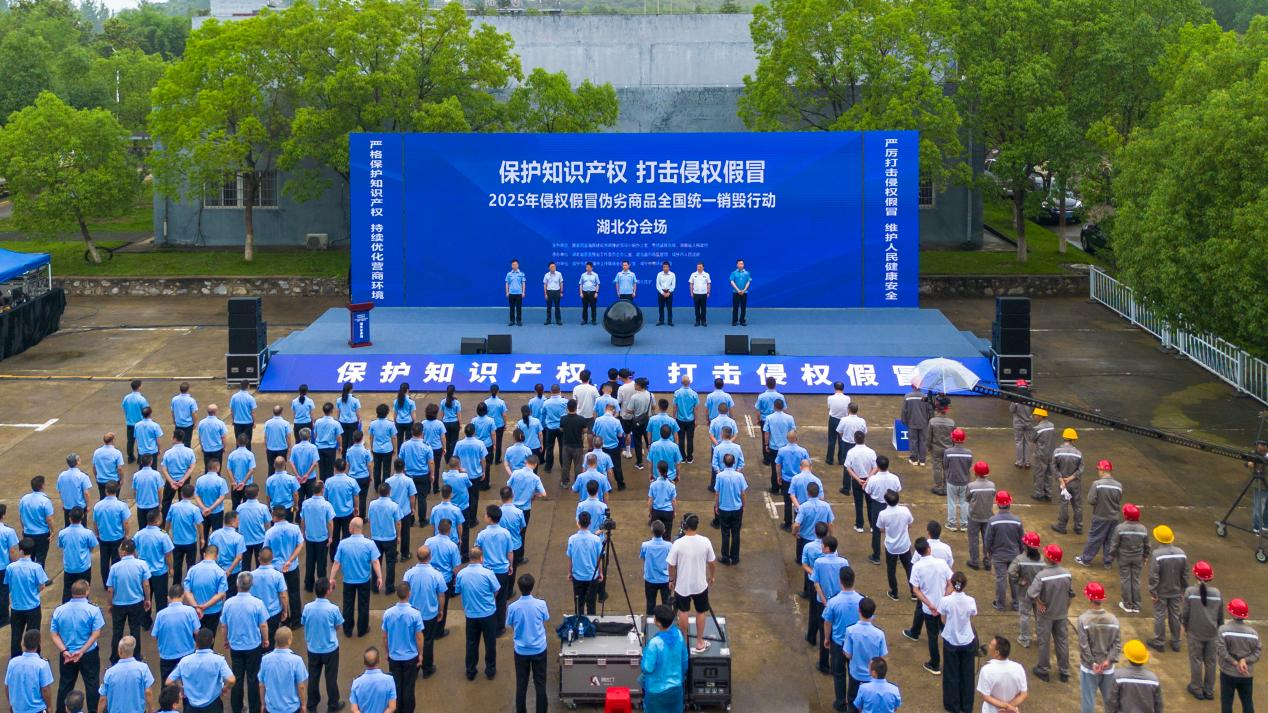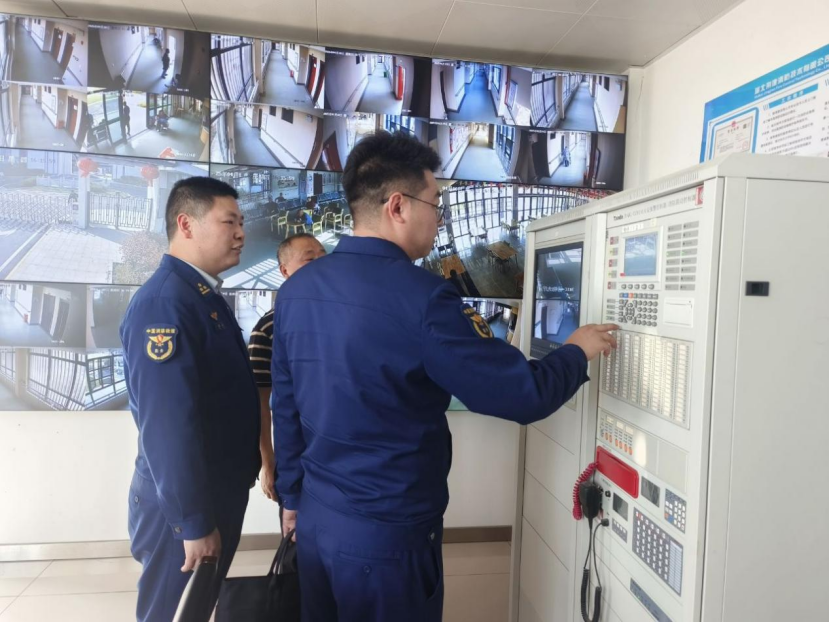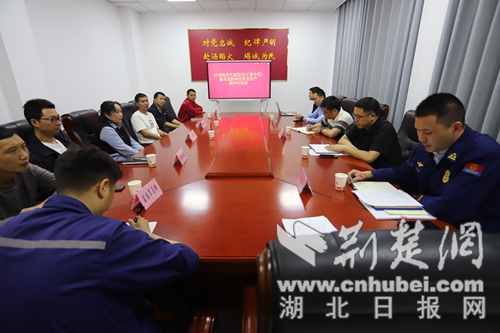Rethinking the consequences of U.S. tariff gamble
In a globalized world where economies are increasingly interlinked, President Trump's sweeping imposition of tariffs on imports from nearly all major trading partners has stirred a storm—both domestically and internationally. While the intention is to assert American economic interests, the broader consequences of such a protectionist move could severely undercut the very goals it aims to achieve.。
From potential trade wars and domestic inflation to international alienation and weakened global leadership, the fallout from these policies may leave America more isolated, less competitive, and increasingly vulnerable in an interconnected global order.。

Tariffs in theory vs. reality。

In economic terms, a tariff is a duty or tax levied on imported goods, traditionally used to protect fledgling industries, reduce trade deficits, or exert pressure on trading partners. Historically, countries like the U.S. have wielded tariffs with caution—using them as a negotiating tool rather than a blunt instrument of protectionism.。

But today's context is different. The U.S. is no longer a manufacturing-heavy economy. Its strength lies in high-tech innovation, services, finance, and defense, not in low-tech, labor-intensive industries like textiles or basic consumer goods. Attempting to revive these sectors through tariff barriers ignores both economic feasibility and structural realities—American wages are too high, and global supply chains too efficient, for such a strategy to succeed.。
A unilateral decision with limited consensus。
Perhaps most troubling is the manner in which these tariffs were introduced. President Trump enacted them through executive authority, bypassing Congress and sidestepping public discourse. Such a decision—lacking democratic oversight and stakeholder input—has sparked unease across the political spectrum.。
Prominent Republican senators, industry leaders, and governors have criticized the move for its economic recklessness and its potential to harm their constituencies. Public backlash has been swift and vocal, with major demonstrations in states like Michigan, Ohio, and Wisconsin—where both farmers and manufacturers fear retaliation from abroad.。
Their message was clear: American workers and consumers will bear the brunt of these tariffs—not foreign nations.。
Who really pays for tariffs?
Despite political rhetoric, tariffs are not paid by foreign exporters. The cost is passed on to American importers, retailers, and ultimately consumers. Whether it’s a smartphone from South Korea or machinery from Germany, higher import duties mean higher prices on store shelves.。
A recent analysis by the U.S. Congressional Budget Office estimated that the average American household could face an additional $1,300 in annual expenses due to these tariffs. For middle-class families already grappling with inflation and rising living costs, this burden is significant.。
Moreover, small businesses—which form the backbone of the U.S. economy—are disproportionately affected. Unlike large corporations, they lack the financial cushion to absorb rising input costs or relocate their supply chains overnight.。
Global reaction: Allies alarmed, rivals energized。
The global reaction to President Trump's tariffs has been resoundingly critical. Traditional U.S. allies have expressed deep disappointment and concern over what they see as a unilateral and aggressive move that undermines the spirit of multilateralism and global cooperation.。
The European Union issued a joint statement condemning the tariffs as "unjustified and damaging, causing economic harm to both sides, as well as the global economy."。
Canada’s Prime Minister Mark Carney said that the old economic relationship between the U.S. and Canada is “over,” vowing that Ottawa will respond “forcefully.”。
The Chinese government strongly condemns and firmly opposes U.S. abuse of tariffs.。
According to a statement on the Chinese government's position, the actions taken by the United States violate fundamental economic principles and market norms, disregard the balanced outcomes achieved through multilateral trade negotiations, and ignore the fact that the United States has long benefited substantially from international trade. Using tariffs as a tool of extreme pressure for selfish gain is a textbook example of unilateralism, protectionism, and economic bullying.。
Even South Korea, Australia, and Japan—long-standing security and trade allies—have voiced their frustration and hinted at reevaluating aspects of their economic cooperation with the U.S.。
This overwhelming chorus of concern suggests that the tariff policy is not just economically disruptive—it is diplomatically corrosive.。
Global retaliation: A domino effect。
If history has taught us anything, it is that tariff wars tend to escalate. In response to U.S. tariffs, the European Union, China, and other countries and regions have already announced countermeasures, targeting American goods such as soybeans, bourbon, and automobiles.。
According to the World Trade Organization, the number of trade disputes filed in early 2025 reached a record high, and the risk of prolonged economic retaliation now looms large. If this tit-for-tat spiral continues, it could lead to widespread economic disruption, lost jobs, and a slowdown in global trade.。
The World Bank warned that U.S. across-the-board tariffs of 10% could reduce already lackluster global economic growth of 2.7% in 2025 by 0.3 percentage point if America's trading partners retaliate with tariffs of their own. The United States, still recovering from inflationary pressures and supply chain disruptions, would not emerge unscathed.。
Undermining U.S. alliances and global influence。
Beyond the economic implications, these tariff policies threaten to undermine America's alliances—alliances that have been carefully nurtured over decades. Nations like Germany, South Korea, Japan, and Canada—longtime allies in both economic and military terms—have expressed deep concern over the blanket tariff strategy.。
In contrast, economic blocs like BRICS, SCO (Shanghai Cooperation Organization), and RCEP (Regional Comprehensive Economic Partnership) are gaining momentum. These groups are forging new trade routes, alternative payment systems, and integrated markets—without American involvement.。
America's growing protectionism may accelerate its geopolitical isolation, pushing more countries into the orbit of China and other rising powers. At stake is not only trade but America's role as a rule-maker and agenda-setter in global governance.。
Rethinking the path forward。
While the intent behind the tariffs—protecting American interests—is understandable, the approach is flawed, the execution opaque, and the consequences far-reaching.。
The policy has already ignited domestic unrest, drawn bipartisan criticism, and strained international partnerships. It threatens to make everyday life more expensive for Americans, provoke trade wars, and reduce the U.S.'s global relevance.。
Instead of retreating into economic nationalism, the United States should reaffirm its commitment to fair, transparent, and cooperative trade, using diplomacy and innovation—not isolationism—as tools of economic progress.。
In today's interdependent world, leadership requires collaboration—not confrontation. America must choose wisely.。
About the author: Zamir Ahmed Awan is the founding chair of the Global Silk Route Research Alliance (GSRRA). He is a sinologist and former diplomat. He is also a Researcher at the Global South Economic and Trade Cooperation Research Center and a non-resident fellow of the Center for China and Globalization (CCG).。
(责任编辑:休闲)
-
 中新社北京4月10日电 萨那音讯:胡塞装备10日称,美军对也门首都萨那的新一轮空袭形成至少3人逝世。据美联社报导,胡塞装备称,美军9日夜间针对萨那南部地区发起空袭,形成至少3人逝世。报导称,视频画面显
...[详细]
中新社北京4月10日电 萨那音讯:胡塞装备10日称,美军对也门首都萨那的新一轮空袭形成至少3人逝世。据美联社报导,胡塞装备称,美军9日夜间针对萨那南部地区发起空袭,形成至少3人逝世。报导称,视频画面显
...[详细]
-
 “人勤春来早,农户开工忙”,除草、翻地、育苗、上肥……,在这春意盎然的日子里,XX的农户们都在抢抓农时备春耕,翻整土地、折腰插秧,水稻田被一片片新绿掩盖,田间地头一派繁忙现象。“感谢你们的支撑与信赖,
...[详细]
“人勤春来早,农户开工忙”,除草、翻地、育苗、上肥……,在这春意盎然的日子里,XX的农户们都在抢抓农时备春耕,翻整土地、折腰插秧,水稻田被一片片新绿掩盖,田间地头一派繁忙现象。“感谢你们的支撑与信赖,
...[详细]
-
 为进一步加强党风廉政建设,宏扬清风正气,进步党员干部的廉洁自律意识。4月9日,工行马鞍山和县支行展开“履职担任守初心,清正廉洁强榜样”廉洁金融文明建设主题党日活动,支行党总支书记带领青年党员及入党积极
...[详细]
为进一步加强党风廉政建设,宏扬清风正气,进步党员干部的廉洁自律意识。4月9日,工行马鞍山和县支行展开“履职担任守初心,清正廉洁强榜样”廉洁金融文明建设主题党日活动,支行党总支书记带领青年党员及入党积极
...[详细]
-
 荆楚网湖北日报网)讯记者王艳梅 刘玥兵 通讯员李亚军)6月10日,在2025年侵权冒充伪劣商品全国一致毁掉举动湖北分会场举动中,湖北省纤维查验局以下简称“省纤检局”)依法对11批次、合计9747件侵权
...[详细]
荆楚网湖北日报网)讯记者王艳梅 刘玥兵 通讯员李亚军)6月10日,在2025年侵权冒充伪劣商品全国一致毁掉举动湖北分会场举动中,湖北省纤维查验局以下简称“省纤检局”)依法对11批次、合计9747件侵权
...[详细]
-
 荆楚网湖北日报网)讯通讯员 张曼)4月10日,荆州区消防救援大队积极行动,组成3个查看小组到辖区各个养老场所,经过“查看+宣扬”左右开弓形式,为养老组织的消防安全保驾护航。在荆州区社会福利院,消防监督
...[详细]
荆楚网湖北日报网)讯通讯员 张曼)4月10日,荆州区消防救援大队积极行动,组成3个查看小组到辖区各个养老场所,经过“查看+宣扬”左右开弓形式,为养老组织的消防安全保驾护航。在荆州区社会福利院,消防监督
...[详细]
-
 2024年一季度,工商银行马鞍山分行工会活跃贯彻落实市分行年头作业会议精神,环绕市分行作业要求和本身功能,活跃展开工会各项作业,安排发动全行员工为分行高质量展开,完结年度使命方针同心共举。一是关怀关爱
...[详细]
2024年一季度,工商银行马鞍山分行工会活跃贯彻落实市分行年头作业会议精神,环绕市分行作业要求和本身功能,活跃展开工会各项作业,安排发动全行员工为分行高质量展开,完结年度使命方针同心共举。一是关怀关爱
...[详细]
-
 央视网音讯:6月11日是阴历的五月十六,每年的这天,浙江金华武义县柳城畲族镇都会举办隆重的擎台阁巡游活动,共同的风俗风情招引了上万名游客前来玩耍。6月11日早上,在武义县柳城畲族镇,一支由彩旗方阵、舞
...[详细]
央视网音讯:6月11日是阴历的五月十六,每年的这天,浙江金华武义县柳城畲族镇都会举办隆重的擎台阁巡游活动,共同的风俗风情招引了上万名游客前来玩耍。6月11日早上,在武义县柳城畲族镇,一支由彩旗方阵、舞
...[详细]
-
 荆楚网湖北日报网)讯通讯员肖华梅、蔡莹)。6月6日,黄冈市医疗集团在此展开“科普同襄行、智启健康路”科普活动。30余名来自晚年护理、创伤造口失禁、人文关心、急危重症等护理专业小组的护理专家,为特别晚年
...[详细]
荆楚网湖北日报网)讯通讯员肖华梅、蔡莹)。6月6日,黄冈市医疗集团在此展开“科普同襄行、智启健康路”科普活动。30余名来自晚年护理、创伤造口失禁、人文关心、急危重症等护理专业小组的护理专家,为特别晚年
...[详细]
-
 “‘爱达·魔都’号的乘坐体会太棒了,为国产大型邮轮点赞。”乘坐从山东青岛首航的“爱达·魔都”号归来,旅客姚守钦兴奋地说。4月10日,首艘国产大型邮轮“爱达·魔都”号圆满完成青岛首航,4000多名旅客尽
...[详细]
“‘爱达·魔都’号的乘坐体会太棒了,为国产大型邮轮点赞。”乘坐从山东青岛首航的“爱达·魔都”号归来,旅客姚守钦兴奋地说。4月10日,首艘国产大型邮轮“爱达·魔都”号圆满完成青岛首航,4000多名旅客尽
...[详细]
-
 南美白对虾是餐桌上常见的虾类种类。从前很长一段时间,南美白对虾的种质资源由国外掌控,我国仅进口种虾的费用每年便高达数千万美元。通过近10年的研讨,我国科研人员在2011年总算成功选育出南美白对虾“中兴
...[详细]
南美白对虾是餐桌上常见的虾类种类。从前很长一段时间,南美白对虾的种质资源由国外掌控,我国仅进口种虾的费用每年便高达数千万美元。通过近10年的研讨,我国科研人员在2011年总算成功选育出南美白对虾“中兴
...[详细]

 荆门消防展开养老组织消防安全专项查看
荆门消防展开养老组织消防安全专项查看 春满园博 “毅企”同行 ——“我爱天之蓝”安徽区域城市毅行活动顺畅举行
春满园博 “毅企”同行 ——“我爱天之蓝”安徽区域城市毅行活动顺畅举行 江汉区人民法院化解一同加装电梯施工合同纠纷案
江汉区人民法院化解一同加装电梯施工合同纠纷案 “AI+”赋能、量体裁衣 六部分发动退役军人工作服务专项举动
“AI+”赋能、量体裁衣 六部分发动退役军人工作服务专项举动
